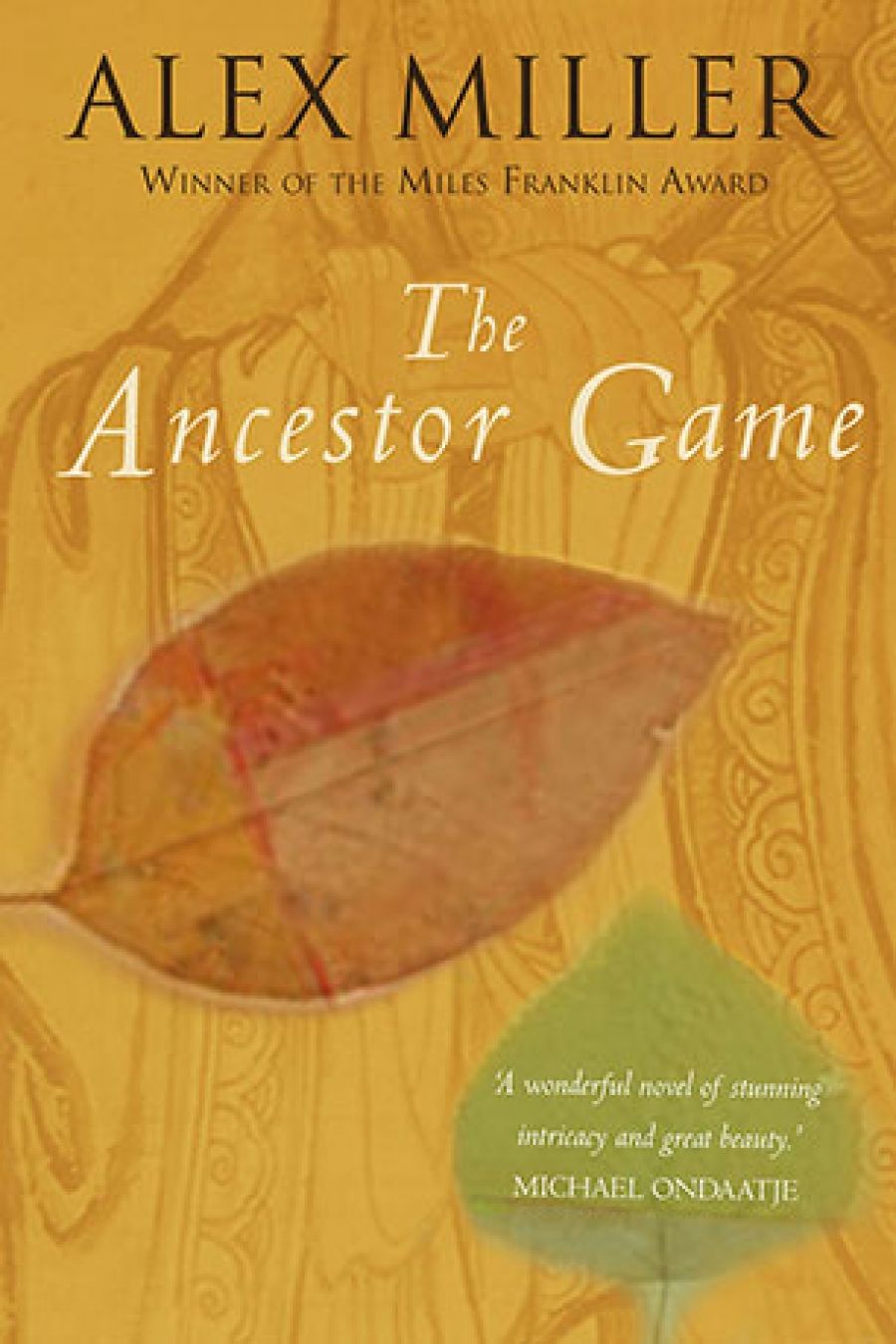
- Free Article: No
- Contents Category: Fiction
- Review Article: Yes
- Online Only: No
- Custom Highlight Text:
Alex Miller’s third novel treads some complex and difficult territory, staking out the past, memory, and the creation of self. It is also an incursion into the shadowy borderlands that lie between history and fiction, and the way in which, for every individual, the past has a different face ...
- Book 1 Title: The Ancestor Game
- Book 1 Biblio: Penguin, $14.95 pb, 0140159878
But what he finds there is unexpected, a truth with many faces, a mystery unfolding within a mystery. This is not a book to pick up and read in a few hours; it is not an ‘easy’ book. Its prose is rich and evocative – the segments on China and Chinese society by themselves make the book something special. Yet the book conceals complexities in its rich gowns, brings them out from hidden sleeves, makes use of illusion and strangeness in a way that forces the reader to think twice, look twice, read twice. As with the central characters in the novel, the book’s mixed Chinese and Australian identities make, at times, for confusion - but I do not mean this in a pejorative sense. Rather, it is the confusion of the hybrid. It is what makes for both the weakness and the strength of the person who comes from more than one culture. I found myself responding very strongly to this element of the novel, which is a very important element in my own life, and my own fiction. Lang, with his mixed Chinese and Australian ancestry, considers his mother and grandfather:
His mother and his grandfather had then passed through the wall together, as if they were not composed of the same substance as he, but were made of a purer material, an elemental, a more primitive substance lacking his heaviness, his destiny of being . Something far older than he. As if their being was composed of a single unbroken thread, linking them to the springs of time, to the original source of being itself. He visualised this link as a continuous shining strand of existence through which the songs of the ancestors found an unimpeded passage.
Every person torn between two cultures - or more! - will understand that longing to be as one with the ancestors, and will recognise, too, what comes right at the end: that for certain people exile is the only tolerable condition. The ancestor link can be a chain as well as a thread to the source of being. The breaking of the link in the generation of the first person to do so sets up an ambivalence for at least the second, and even subsequent generations. Migration can be - even for those of the first generation who remain very much psychologically still a part of their homeland - a mixed blessing. ‘Going back’ is never the same for, indeed, the past is like a foreign country. Not at ease in the first country, not at ease in the second: that is the curse.
But the blessing is that, as in all myths of being, a curse can be turned into a blessing. Exile can indeed be the only tolerable condition for certain people – can be a source of creation and questioning. Not to have a fixed ‘identity’ is not necessarily a bad thing. Being strong enough, unafraid enough, to allow the past and ancestors into our individual lives, not unquestioningly, but with subtlety and understanding, is the challenge set in this profoundly humane and compassionate book. Let me close with a quote from The Ancestor Game:
The ancients of all nations understood that we don’t belong anywhere real. They understand that the mystery of life, the paradox of our existence, is located in that charged space between the present reality of our individual life and the dream of immortality of our species. It’s the Phoenix, among the mythical beasts, which embodies this paradox for both the occidental and the oriental worlds alike.


Comments powered by CComment